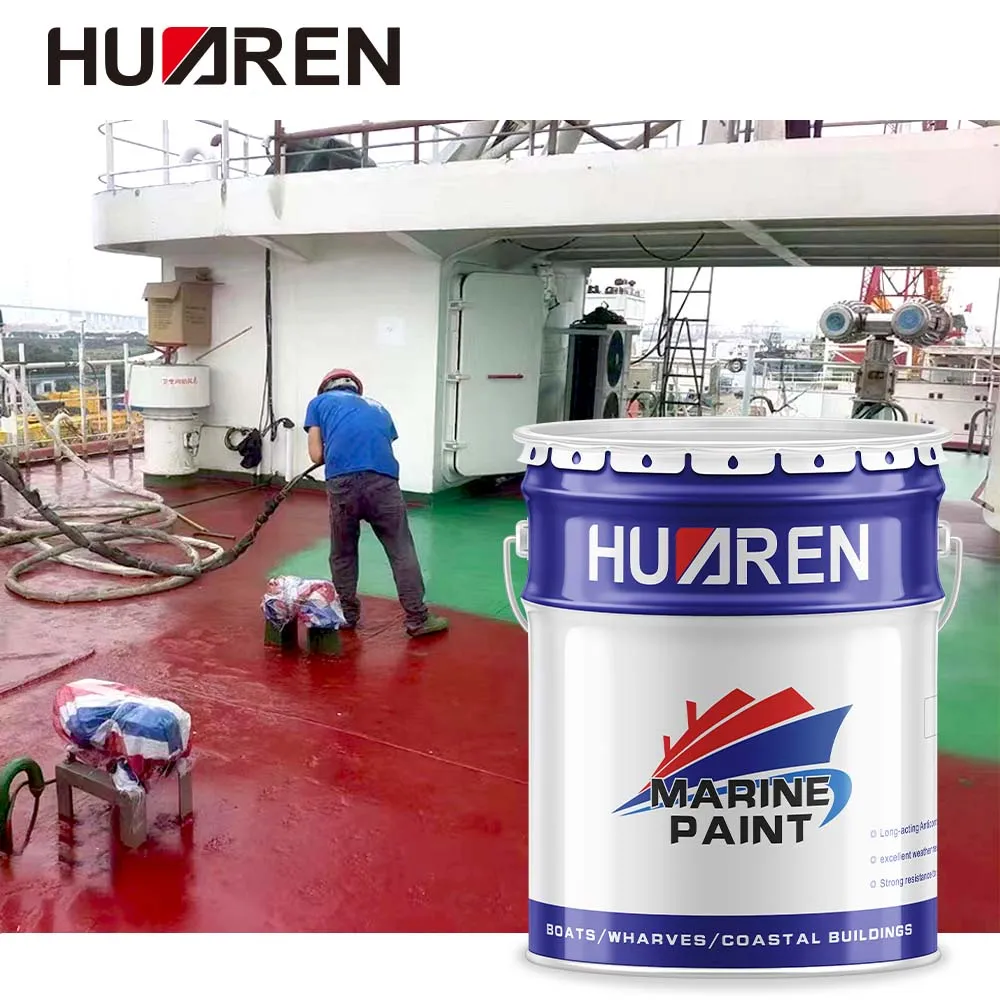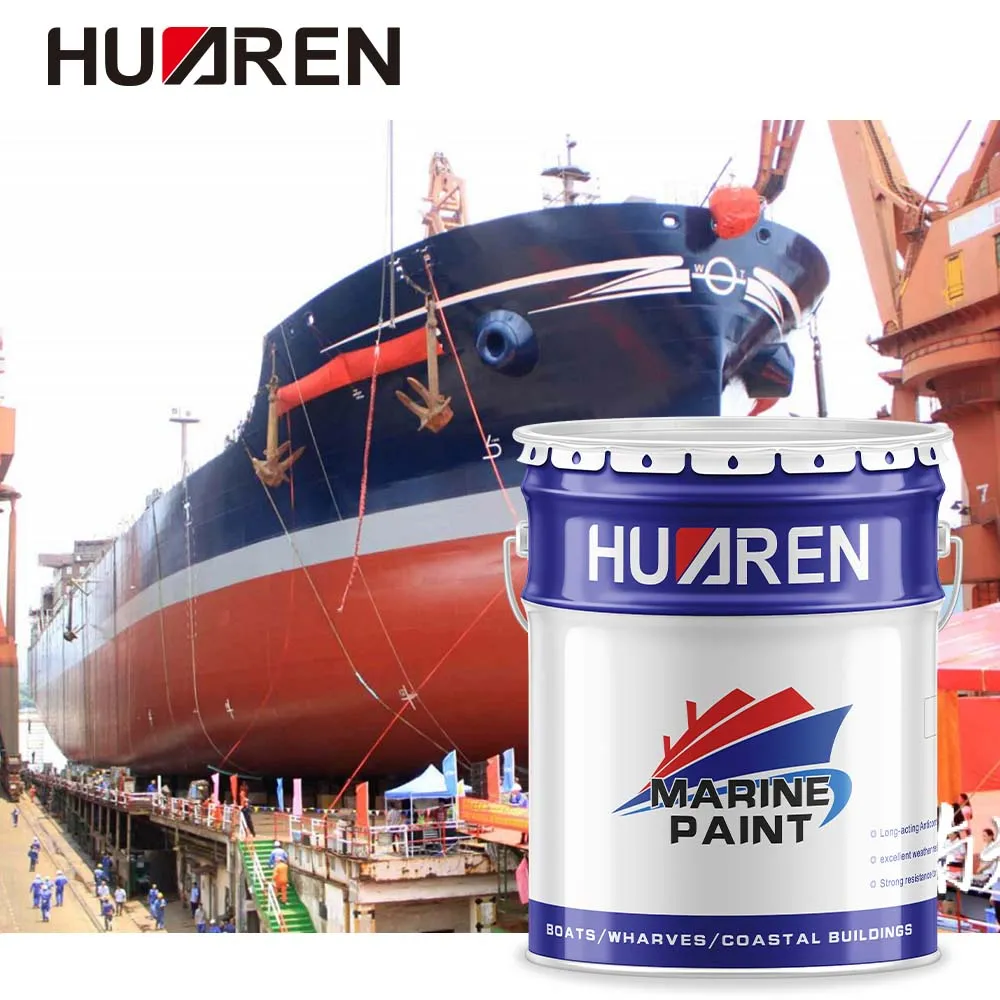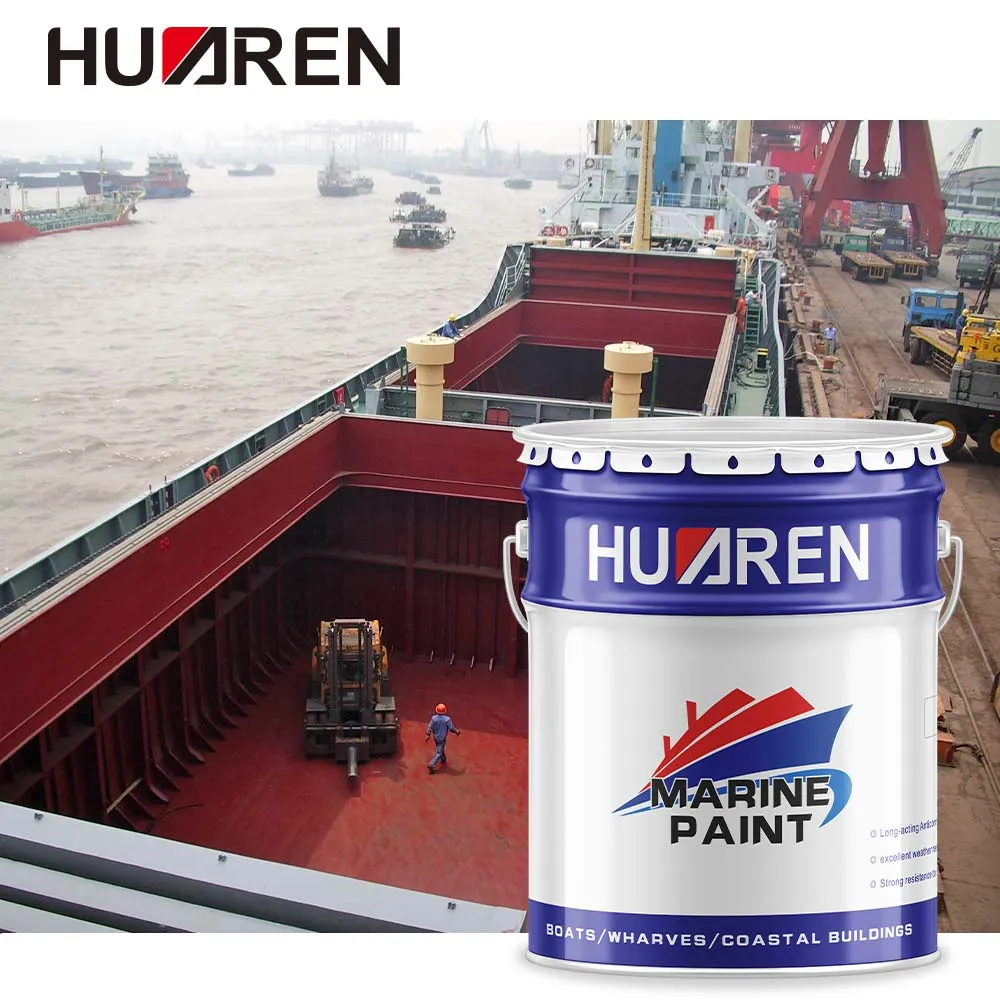Marine paint, as an indispensable part of the marine industry, has a decisive impact on the life, performance and safety of ships. Especially in the marine environment, ships need to face complex climatic conditions and long-term erosion of high-salinity water bodies, and corrosion resistance has become one of the core criteria for judging the performance of marine paint. So, what kind of marine paint is the "most corrosion-resistant"? This is not only the focus of ship manufacturing and maintenance companies, but also a long-term exploration of scientists and technical researchers.
This article will comprehensively analyze this issue from the perspectives of the basic functions, classification, corrosion resistance and key technical indicators of marine paint.

What are the basic functions of marine paint?
Marine paint is a protective material applied to the outer surface and internal structure of the hull. Its main functions include:
● Anti-corrosion: High concentrations of chloride ions, oxygen and microorganisms in seawater can cause serious corrosion to the metal hull. Marine paint isolates the hull from the external environment by forming a dense coating, thereby effectively slowing down the corrosion process.
● Anti-fouling ability: When the hull is sailing in the sea, seaweed, shellfish and other marine organisms are very easy to attach to the surface of the hull, which not only increases the weight and resistance of the ship, but also affects fuel economy. Some ship paints can prevent these organisms from attaching by releasing specific substances.
● Beautiful decoration: Ship paint provides color decoration for the ship, enhances its brand recognition, and also plays a role in covering surface defects.
● Durability and mechanical damage prevention: The hull is often subjected to physical damage such as wave impact and cargo impact. High-quality ship paint can withstand external impact and maintain the integrity and protective function of the coating.
What are the core characteristics of corrosion-resistant ship paint?
Among all functions, corrosion resistance is regarded as the core characteristic of ship paint. So, what indicators should the "most corrosion-resistant" ship paint have? Here are a few key points:
1. Coating density
The coating of corrosion-resistant ship paint needs to have extremely high density to effectively isolate the invasion of air, moisture and corrosive chemicals. This feature is mainly achieved through the precise ratio of base resin and filler in the paint.
2. Chemical inertness
The ingredients in the coating must be highly chemically inert and able to resist corrosion by strong oxidants, acidic substances and chloride ions in seawater. For example, materials such as epoxy resins and polyurethanes are widely used in the field of marine paints due to their excellent chemical stability.
3. Adhesion
High-quality marine paint coatings need to have strong adhesion to metal substrates or other primers. In practical applications, if the coating cannot fit tightly to the hull, even if the material itself has excellent corrosion resistance, it cannot provide effective protection.
4. UV resistance
Ships are exposed to strong sunlight all year round, and ultraviolet rays can cause the coating to age and lose its protective ability. Therefore, corrosion-resistant coatings must also have good UV resistance to extend the life of the coating.
5. Abrasion resistance
Marine paint is inevitably subject to mechanical friction from sand, ice and other floating objects in the marine environment. High abrasion resistance can reduce coating peeling and maintain its anti-corrosion function.

Corrosion resistance of different types of marine paints
There are many types of marine paints on the market. The following types of paints are widely used due to their different characteristics:
1. Epoxy resin paint
Epoxy resin marine paint is known for its excellent chemical stability and adhesion. The epoxy group in its molecular structure can react chemically with a variety of substrates to form a dense coating to prevent corrosion factors from penetrating.
● Advantages: strong salt spray resistance, high mechanical strength, and strong bonding with the substrate.
● Disadvantages: weak UV resistance, usually needs to be used in combination with other coatings.
2. Polyurethane paint
Polyurethane marine paint has excellent wear resistance and UV resistance, and is an ideal choice for marine paint coatings. Its toughness makes it perform well in dealing with external impacts and environmental stresses.
● Advantages: good weather resistance, high gloss, and stable color.
● Disadvantages: high cost and strict requirements on construction technology.
3. Chlorinated rubber paint
This paint was widely used in marine paint in the early days and was favored because of its low cost and convenient construction. However, with the tightening of environmental regulations, its market share has gradually shrunk.
● Advantages: chemical corrosion resistance, easy construction.
● Disadvantages: poor environmental performance, insufficient coating flexibility.
4. Inorganic silicate coatings
Inorganic silicate marine paints provide extremely high corrosion resistance by forming a chemically stable ceramic coating.
● Advantages: high temperature resistance, strong anti-permeability.
● Disadvantages: high brittleness, high construction requirements.

Criteria for the selection of the most corrosion-resistant marine paints
When choosing the "most corrosion-resistant" marine paint, it is not only necessary to consider theoretical performance, but also to combine the actual use environment and economic factors. For example:
● Area of use: The requirements for the bottom coating and the coating above the waterline are different. The bottom coating needs to focus on anti-biological adhesion performance, while the UV resistance needs to be considered above the waterline.
● Ship type and purpose: Military ships usually have higher requirements for corrosion resistance than civilian ships, while deep-sea fishing vessels need to have stronger salt spray resistance.
● Construction conditions: Some high-performance coatings have high requirements for construction environment and process, and the construction cost and technical feasibility need to be comprehensively evaluated.
● Environmental protection: The research and development of modern ship paints has attached great importance to environmental protection performance, especially under the background of strict restrictions on toxic substances by the International Maritime Organization (IMO), environmentally friendly anti-corrosion coatings have gradually become the mainstream of the market.
Looking for top-quality industrial coatings and resins? Huaren Chemical Industry Co., Ltd. is a trusted Chinese factory with nearly 30 years of experience in manufacturing and exporting durable, high-performance products. Our range includes epoxy paints, alkyd coatings, and waterborne industrial paints, designed for industries like construction, petrochemicals, and shipbuilding. With a robust annual production capacity exceeding 20,000 tons, we ensure timely delivery and consistent quality. Buyers benefit from our competitive factory prices, wholesale discounts, and tailored solutions. Contact Huaren Chemical today for promotional offers and detailed purchasing options, and let us support your business with world-class products.

